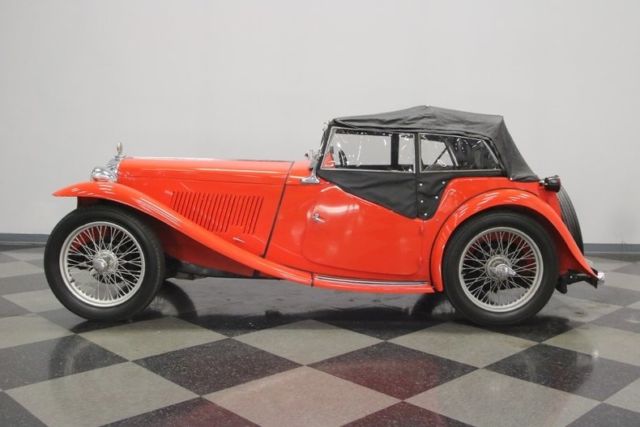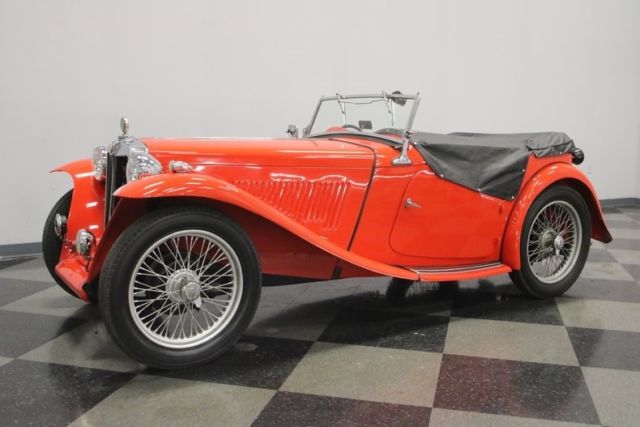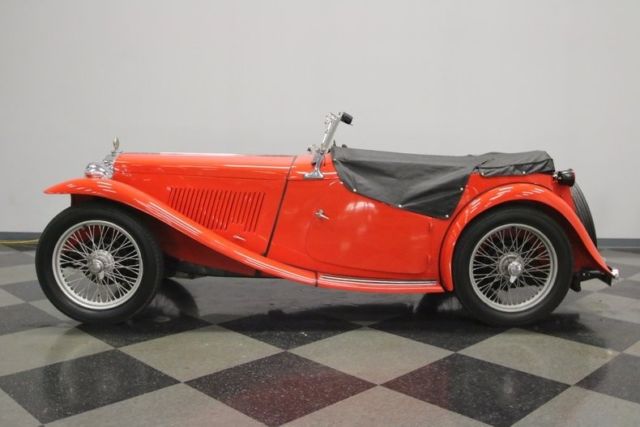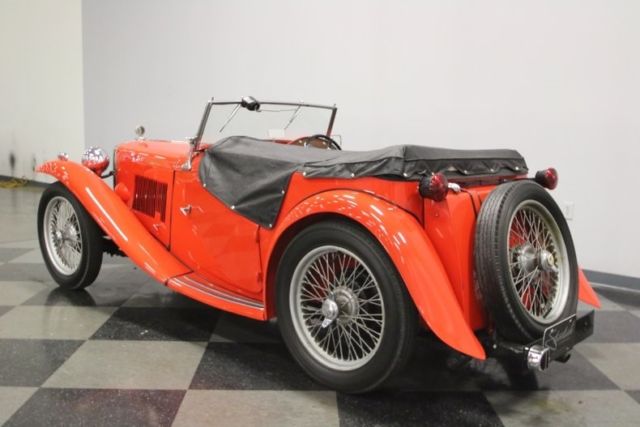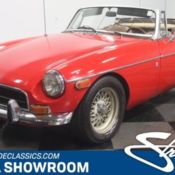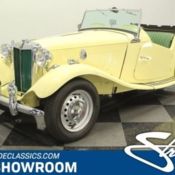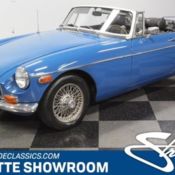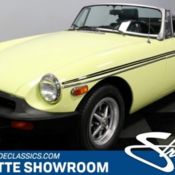|
This is the car that started the "sports car" craze in America. Soldiers in WWII had a blast driving cars like this around Europe, and wanted one like it when they returned home. When British automobile production restarted after the war, they immediately started exporting the TC to the United States, steering wheel still on the right side of the car and all. This is a fine example of one of these historically significant cars. Check it out. ... This car was fully restored in 1984 and driven for several years until it was parked in '92. Last year, it was pulled out of the garage and run through the shop to clean out the fuel system, tune it up, and polish it up. It is unmistakably old school British in part because of its diminutive size but also because of its long piano hinged hood, upright chrome radiator, separate headlights, and swooping fenders covering tall tires mounted on center spin wire wheels. Plus, with the steering wheel on the right hand side, it's fun when you pull up to a drive through window. The experience of driving is quite different in these cars too, for several reasons. The doors cut down so low that you can almost reach out and touch the ground and you are sitting way back in the wheelbase so feel the road very differently as you wheel around a bend. Its quite exhilarating. Open that little drivers door, which charmingly hinges at the back making it easier to get in, and slide yourself into the cockpit. Once settled in, you will find yourself sitting close to the ground with plenty of room to stretch out your legs with the shifter at your left hand. The pedals are set nicely for spirited driving. They are close enough together that with a little practice, some heal and toe clutch work can be fun, but wear your sneakers because a pair of big 'ol work boots probably wouldn't fit so well down there. The seats are covered in black leather and the black steering wheel has a classic look with its four spoke wire hub and MG center button. The dashboard is beautifully finished wood that curves gracefully across the car. The Tachometer is in front of the driver with the speedo, courteously labeled in MPH, off on the left side of the dash. An aluminum center panel is wonderfully original with the ignition switch and the "dipper" (blinker) switches in the center flanked by oil and water gauges on the right, an amp meter on the left, and a row of controls along the bottom. Open that piano hinged hood and you will find a 1250 CC (76 cubic inch) 4-cylinder engine. It is a simple design and most everything is easy to get to. There is an aluminum valve cover with black thumb wheels holding it down to facilitate easy removal, because these engines do require regular valve adjustments. The dual carburetors this car came with frequently needed to be adjusted as part of a tune up too, however that maintenance procedure has been eliminated by the single carb update this car received. The TCs have a 12-volt electrical system and are charged by a generator. Power is sent back through a 4-speed manual transmission to the rear wheels. The suspension is leaf spring both front and rear and center spin wire wheels hold 450X19 tires with the spare mounted to the back of the gas tank. The cars handling is fun largely because it sits so low to the ground and because it is so light. Unique, fun, historically significant. Grab your driving hat and come on down. You might decide to take it home, and then out for drive in the country for a picnic on a blanket.
|
 Home
Home Contact us
Contact us NEWEST CARS
NEWEST CARS SELL YOUR CAR
SELL YOUR CAR FAQ
FAQ


